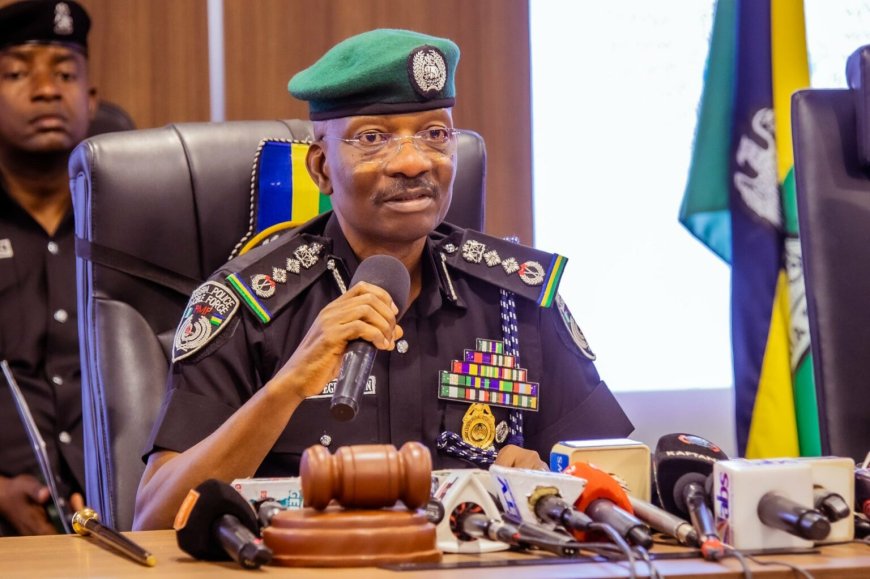Corruption at Its Core: A Police Officer’s Bribe and the Urgent Need for Reform
A critical look at police corruption in Nigeria, highlighting the case of a bribing officer and the dismissal of Corporal Opeyemi Kadiri. In this article, we explore the urgent need for police reform, accountability, and restoring public trust in law enforcement.

In a recent, disheartening incident, a police officer was caught red-handed accepting a bribe - a sight that, though sadly not unfamiliar, strikes deep into the heart of a nation already battling with issues of trust, accountability, and institutional decay. What makes this moment particularly disturbing is not just the act itself, but the larger implications it holds for our society and the integrity of our law enforcement agencies.
This officer, whose duty is to uphold justice and maintain order, chose instead to embody the very corruption that law enforcement is meant to combat. In doing so, they not only violated the trust bestowed upon them by the public but also further demarketed our nation’s image on a global stage. It is a betrayal of both responsibility and national identity.
Let us be clear: this is not an isolated case. It is symptomatic of a broader culture of impunity and moral compromise. When one officer engages in bribery, it sets off a ripple effect—legitimizing wrongdoing, normalizing unethical conduct, and corroding the moral fabric of the police institution. The tragedy is compounded by the fact that such actions overshadow the efforts of countless officers who risk their lives daily in honest service to the public.
The presence of corruption in law enforcement signals a deeper institutional dysfunction. It fosters environments where lawlessness thrives, justice is for sale, and citizens are left unprotected. In such settings, the law becomes a tool for exploitation rather than empowerment. Trust in the police—already fragile—is shattered, and the critical social contract between the people and their protectors disintegrates.
A case that exemplifies the dangers of unchecked misconduct is that of Corporal Opeyemi Kadiri, who was dismissed from the Nigerian Police Force after a viral video exposed him violently stopping citizens on a highway and forcefully searching their mobile phones—an action in clear violation of the police code of conduct and citizens’ constitutional rights. This incident not only reflected a gross abuse of power but also revealed the extent to which some officers disregard due process and dignity in their dealings with the public. The swift dismissal was a commendable move, yet it underscores the urgent need for proactive reform, not just reactive measures. It should not take a viral video for justice to be served.
A society that cannot trust its law enforcement is a society standing on unstable ground. Corruption within the police force does not merely affect individual cases—it endangers communities, encourages criminal activity, and perpetuates inequality. When citizens begin to view officers not as guardians but as predators, the consequences are far-reaching and dangerous.
More than that, corruption reflects poorly on the state. It repels foreign investment, diminishes national pride, and invites criticism from the global community. The actions of one corrupt officer can damage the collective reputation of the nation—painting all in the same shameful brushstroke.
What's the Wayout?
Now, more than ever, we must confront this crisis head-on. There must be zero tolerance for corruption in uniform. Officers who betray their oath should not only be exposed but also face swift and transparent justice. Internal affairs departments must be empowered, protected, and encouraged to act without fear or bias.
Furthermore, we must uplift the voices of those within the police who are committed to reform. Whistleblowers and reformists need institutional support, not retaliation. Their courage to speak truth to power should inspire systemic changes, not be buried by bureaucracy.
It is time to redefine what honor in service truly means. Our law enforcement institutions must be rebuilt on pillars of integrity, transparency, and accountability. Recruitment should prioritize character as much as competence. Training should emphasize ethics, and leadership must lead by example.
Importantly, the public also has a role. Civic engagement, media scrutiny, and community policing models can help restore balance and ensure the police are working with—not against - the people.
The disgraceful actions of a single police officer must serve as a catalyst - not just for condemnation, but for comprehensive reform. Our collective future depends on restoring the dignity and trust associated with those who wear the badge.
We must insist on a culture where corruption is not tolerated, where accountability is the norm, and where public service is synonymous with honor. Only then can we begin to rebuild the bridge between law enforcement and the citizens they are sworn to protect.
Let this incident not fade into silence. Let it be the spark that ignites change.







